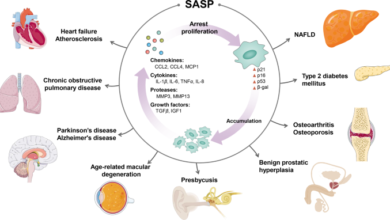The Importance of Mental Health Support in Assisted Living Facilities

Age-related health issues can be complex for seniors to deal with. This can be especially true for those who have mental health disorders such as depression.
Assisted living facilities offer an ideal setting for those with mental health conditions to feel safe and connected. These communities have regular social activities, classes, and other opportunities for social interaction.
Anxiety
Many older adults have anxiety, which is often caused by the loss of family or friends, financial issues, and declining health. Anxiety can cause irritability, fatigue, sleep changes, and worry. However, less than half of seniors with anxiety receive treatment, according to studies.
Assisted living homes ought to provide the resources necessary to address both physical and mental health issues. Whether by offering wellness and exercise programs or counseling services, addressing these needs is essential before moving a loved one into an assisted living facility.
For those with mental illnesses, having a therapist on-site can be beneficial; several facilities even offer this service. These therapists can help patients cope with their emotions and find ways to manage them. They can also teach relaxation techniques, such as deep breathing and meditation. These activities can aid in lowering tension and anxiety, which frequently exacerbates seniors’ feelings of isolation and loneliness. They can also help improve a resident’s quality of life and their overall satisfaction with the care.
Read More: Factory reset
Depression
Depression isn’t a normal part of aging, and it can have serious health consequences for seniors. According to the CDC, older adults who have depression are more likely to have other chronic diseases and may require hospitalization or a higher number of doctor visits. Depression also increases the risk of suicidal behavior and isolation.
St. Augustine assisted living communities are noninstitutional settings geared toward senior adults needing a worry-free lifestyle but not requiring a nursing home level of care. They offer room and board, nonmedical assistance, and daily social and recreational activities that can help improve mental health. During the COVID-19 pandemic, facilities need to be able to identify symptoms of depression and anxiety in their residents and take action accordingly. This requires staff members to be observant and attentive. They also need to have access to psychiatry services when required. Psychiatry may be available at the local mental health department or through an independent living program.
Eating Disorders
A variety of mental health issues can impact an older adult’s quality of life. Eating disorders, depression, and a history of trauma are all common in seniors and can be hard to manage alone.
Seniors with eating problems might benefit significantly from assisted living facilities because they offer nutritious meals, recreational and social activities, and medical management services. Many of these communities also provide support groups, daily fitness classes, and crafting workshops to help residents stay active and connected with others in their community.
However, some assisted living facilities have trouble handling mental health issues. This is because businesses must keep their occupancy levels high and pay for staffing. Moreover, their culture and values may not always align with those of people with mental illness. For example, some staff members in these communities may stigmatize and discriminate against individuals with a mental illness, such as anorexia, bulimia, or bipolar disorder. A vicious circle of complex actions and psychological evaluations may result from this.
Dementia
In assisted living facilities with a high percentage of people living with dementia, it’s essential to know what to look for. The facilities should be familiar with this particular group of patients and have counselors who can support clients whose behavior changes.
Counselors can help these clients process their fears and feelings of loss and work toward accepting their situation. They can also teach their families coping techniques and other strategies to deal with the challenges that dementia brings.
Behavioral changes can include aggressiveness, sexual acting out, and psychotic symptoms. It’s important to know whether the facility has dealt with these problems in the past and, if so, how they handled them. Often, these communities have specialized mental health services that are more suited to people with these problems. They may be called behavioral assisted living or mental health assisted living. You can find them by searching online or contacting your state’s long-term care office to speak with a specialist.



